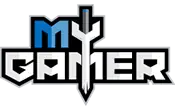Another indiscriminate, yet short, length of time…another Naruto game hits the market. This time, it’s Naruto: Ninja Destiny for the Nintendo DS, and at this point, D3, Ubisoft and Namco-Bandai have to start worrying about how they’re just running out of words to put next to “ninja.” Ninja Destiny treads into fairly untested waters, as one of the only fighting games on the platform (other than the atrocious Guilty Gear Dust Strikers and fellow trendy anime game, Bleach: Blade of Fate). Ninja Destiny shows a couple glimmers of greatness, but then falls short of actually being truly great.
The fighting game is probably the most deeply-penetrated (hehe) genre of the many fronts of the license game invasion. Essentially, every anime series that has some sort of focus on a form of combat has between one and forty fighting games, with Naruto on pace to have more than any other thus far. In this humble journalist’s opinion, Clash of Ninja has been the place to find the best prepubescent shinobi fighting, and Ninja Destiny is something like Clash of Ninja-Lite.
The controls are fairly simple, quite similar to the CoN games. There are two attack buttons; B does a quick jab or kick, while Y does a slower, stronger attack and, naturally, pressing different directions with the attack buttons do some different attacks. There are only a handful of combos amongst each character, typically a three or five hit combo which starts with YBB or BBY. These movesets feel somewhat restrictive, which is a direct result of the shift from the Gamecube to the DS. Throws are a terrible cut from the game, which is always a staple in every fighting game. There are some terribly pointless power-ups found on the touch screen, which do various things like recovering health, or being able to instantly use a super, but they’re so contemptibly tacked-on that it’s stupefying. The teleportation/substitution techniques, as well as supers, both remain, tied to the same meter, which is now divided up into four blocks, with L mapped to the teleporting and substitutions and A being mapped to supers. Sidesteps are now done using up and down on the control pad, rather than the triggers, making for a faux-eight-way-run (a la Soul Calibur).
The game feels slower and clunkier, and almost none of the combos feel like you’ve actually accomplished something. Despite all this, Ninja Destiny is, possibly, the best Naruto fighting game yet. Rather than a “who hits first?” marathon like in the Clash of Ninja games, Ninja Destiny shifts gears, putting a higher emphasis on pressuring opponents and mix-ups. Rather than an exclusively defensive technique, teleporting can be used offensively. At the expense of one block, you can cut an attack short, breaking out of the recovery, and warp behind your opponent, ready to attack. This makes for a faster-paced, and significantly better-balanced fighting game than the poke-fest (which immediately got cancelled by an opponent’s teleport) from the Clash games. While Ninja Destiny is by no means a great fighting game, it’s a big step in the right direction for future Naruto fighters.
There are only three modes of play, story mode, “single player mode” (usually called arcade mode) and single fights, which is fine because time trials and survivals and the like are rarely anything more than annoyances between the player and a character they’re forced to unlock. Story mode picks up smack in the middle of the series, with Naruto gearing up to rob Neji in the Chunin exams, and goes up to Tsunade’s appointment as the fifth Hokage. The game’s cast can best be described bare-bones, for a series that essentially revolves around developing its large cast of characters, limited to a humble sixteen characters, made up of pretty much the most-important (and most-popular) characters in the series, nine of which need to be unlocked. Multiplayer is available, but it is multi-cart-only, and there is no Wi-Fi play, which is a huge disappointment (Nintendo…you guys force publishers to include touch-screen stuff…why not force them to include single-cartridge multiplayer?).
Graphically, the game is pretty good, all things considered. Characters are pretty well-detailed, though quite blocky. The real quality in the graphics comes from the well-rendered, detailed attack animations, especially for the supers. Most of the levels look nice, with a 2d scrolling image in the background and a textured floor. Some of them look silly, however, when the background image scrolls by frequently when it’s meant to be a huge landmark (for example, there is a level which has two statues carved into mountains in the background, facing each other, and two sidesteps will make it appear in the background again). But the 3D character engine runs very smooth, especially on the DS hardware. The sound is quite lacking, however, with repetitive music and heavily-compressed battle cries and smack-talk.
As with all the other Naruto games, there isn’t that much value in the game past the license. It’s an average DS game which is populated by a long list of games worth buying ahead of it. It shows promise for upcoming Naruto fighting games from Tomy, with the much-needed transition from heavily-defensive to balanced gameplay, which ultimately makes the game have a much better pace (despite a massively huge life bar). As is to be expected, fans of the anime will buy it. Very few others will. And in three months, a new Naruto fighting game will probably be out.
President & CEO
















Leave a Reply